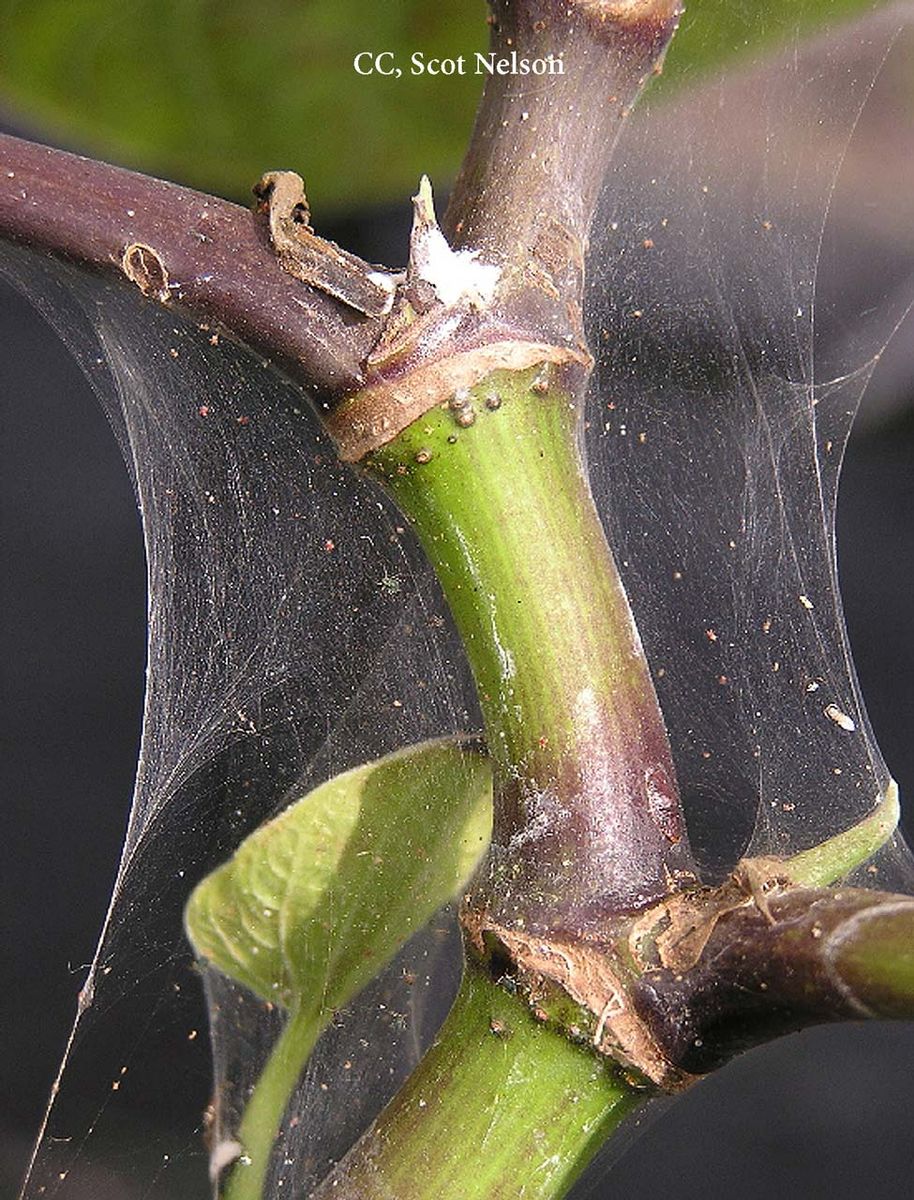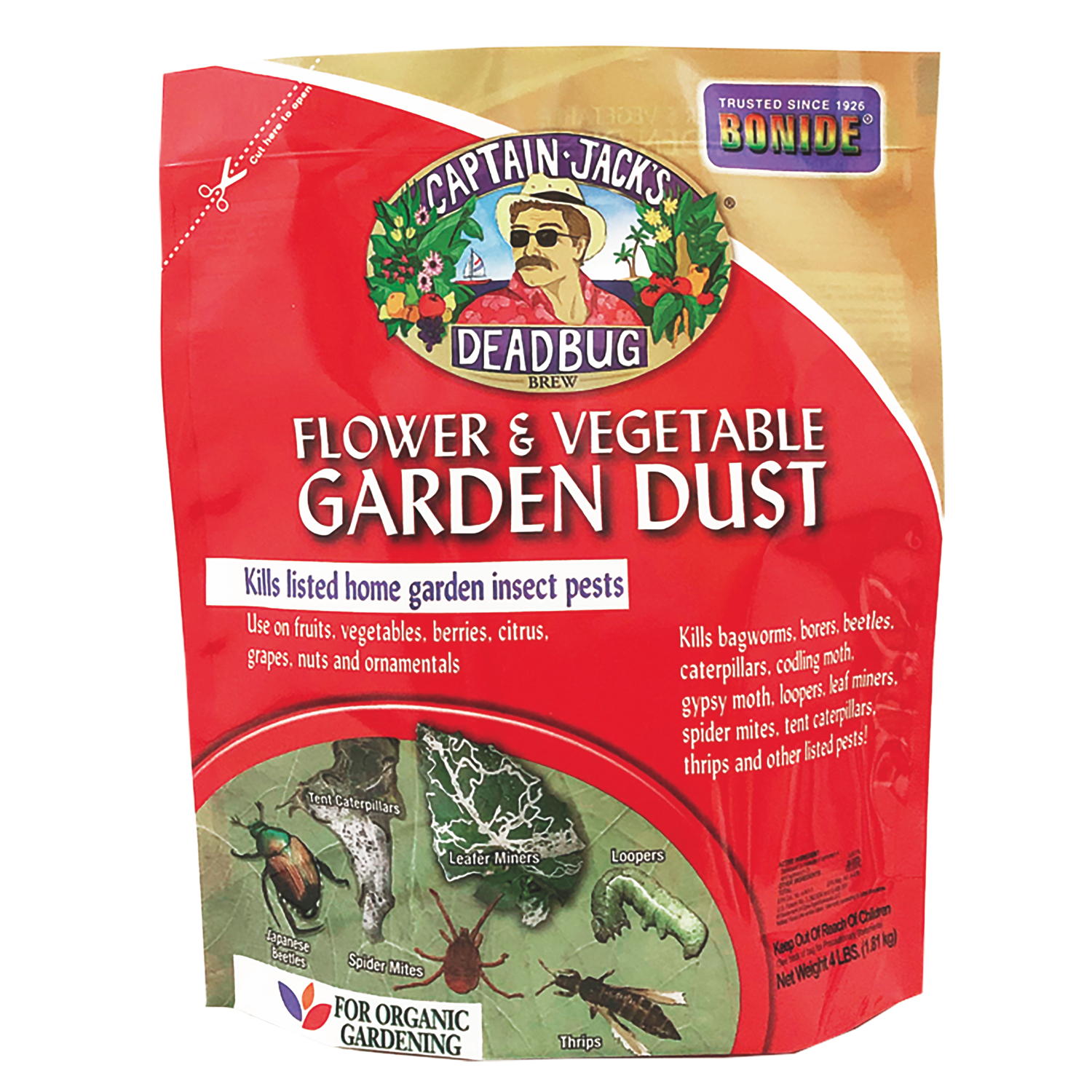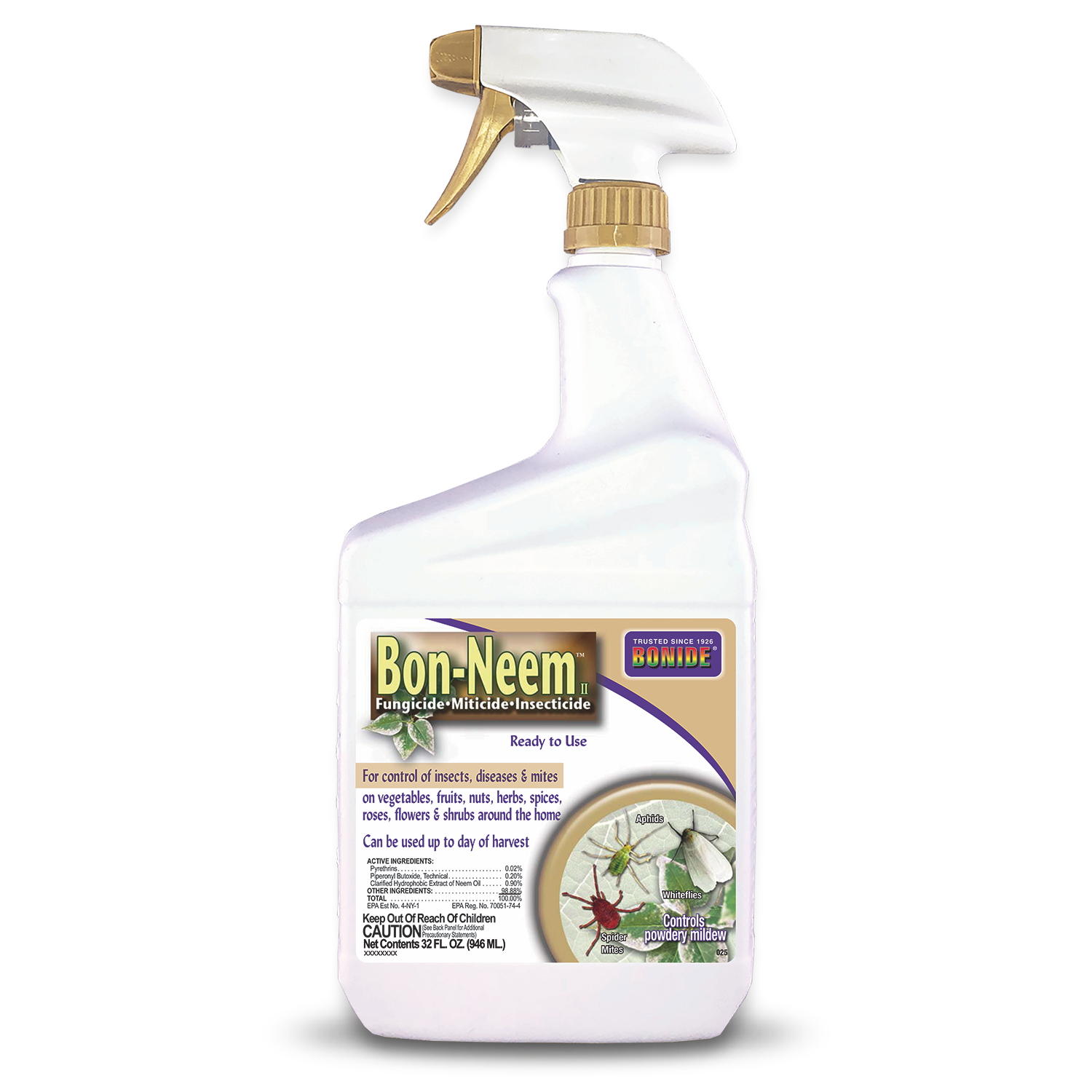
Too small to be seen clearly with the naked eye, these insect relatives flourish in hot, dry environments and on water stressed plants. Unlike predatory mites, spider mites suck plant juices and spin webs.
Target: All plants, but especially fruit trees and small fruits, cucurbits, tomatoes, and roses.
Damage: Leaves are stippled with yellow or fade to a bronze color. Plant parts may be distorted and covered with webs. Severely infested plants lose vigor and may die.
Life cycle: There are many generations a year; in warm climates, reproduction goes on nonstop the year around. The pests can overwinter as adults or as eggs on host plants.
Notes: To confirm the presence of mites, hold a sheet of white paper under a leaf and rap the stem sharply; any mites will tumble onto the paper and move around. Mist plants to create an unfavorable environment for mites; spray strong jets of water to knock the pests from their perches. If you use sulfur, or oil, you may need to spray every 7 to 10 days. Spider mites are resistant to most other pesticides, and if pesticides kill their natural enemies, the mites can increase uninterrupted, thanks to their very short life cycle.
















